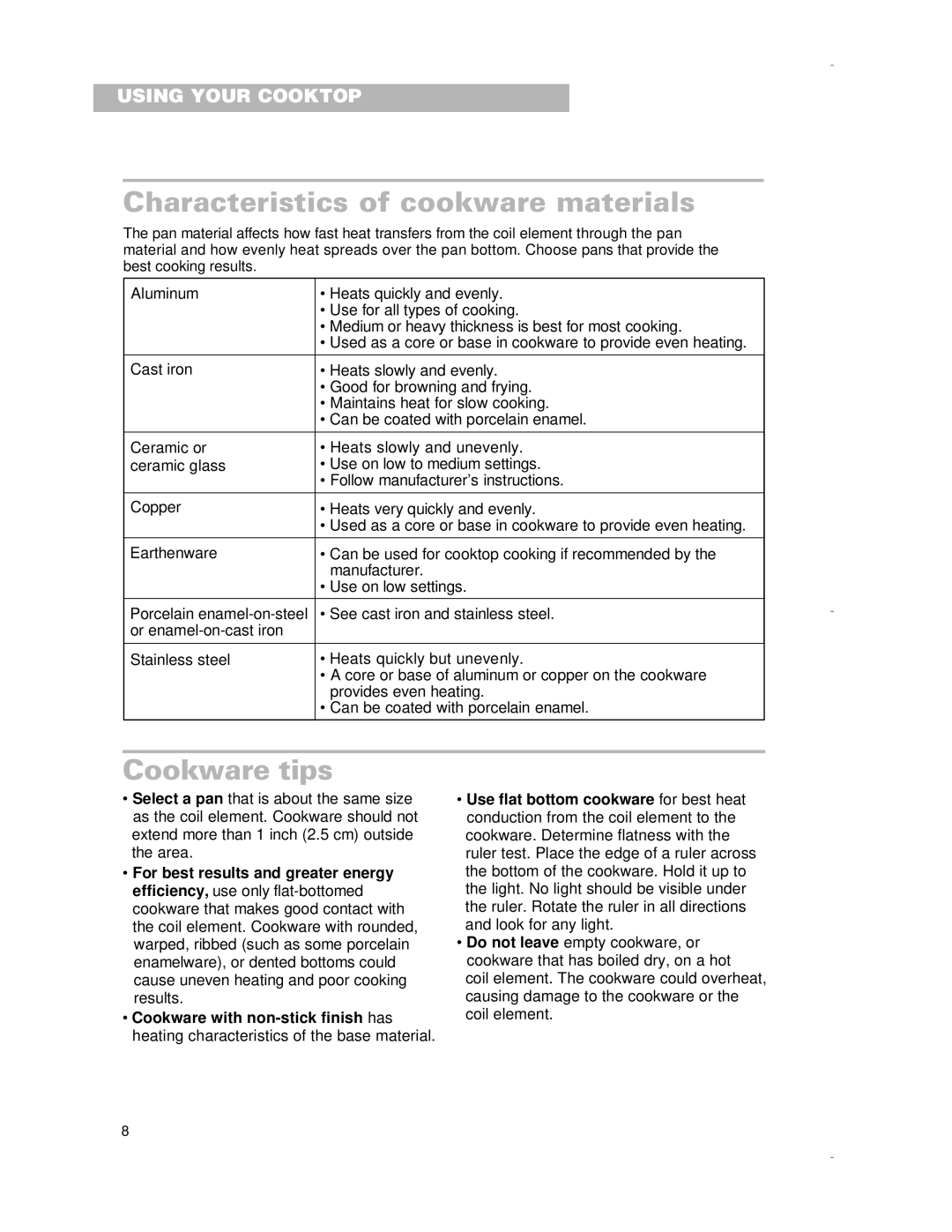
USING YOUR COOKTOP
Characteristics of cookware materials
The pan material affects how fast heat transfers from the coil element through the pan material and how evenly heat spreads over the pan bottom. Choose pans that provide the best cooking results.
Aluminum | • Heats quickly and evenly. |
| • Use for all types of cooking. |
| • Medium or heavy thickness is best for most cooking. |
| • Used as a core or base in cookware to provide even heating. |
Cast iron | • Heats slowly and evenly. |
| • Good for browning and frying. |
| • Maintains heat for slow cooking. |
| • Can be coated with porcelain enamel. |
Ceramic or ceramic glass
Copper
•Heats slowly and unevenly.
•Use on low to medium settings.
•Follow manufacturer’s instructions.
•Heats very quickly and evenly.
•Used as a core or base in cookware to provide even heating.
Earthenware | • Can be used for cooktop cooking if recommended by the |
| manufacturer. |
| • Use on low settings. |
Porcelain
Stainless steel
•See cast iron and stainless steel.
•Heats quickly but unevenly.
•A core or base of aluminum or copper on the cookware provides even heating.
•Can be coated with porcelain enamel.
Cookware tips
•Select a pan that is about the same size as the coil element. Cookware should not extend more than 1 inch (2.5 cm) outside the area.
•For best results and greater energy efficiency, use only
•Cookware with
•Use flat bottom cookware for best heat conduction from the coil element to the cookware. Determine flatness with the ruler test. Place the edge of a ruler across the bottom of the cookware. Hold it up to the light. No light should be visible under the ruler. Rotate the ruler in all directions and look for any light.
•Do not leave empty cookware, or cookware that has boiled dry, on a hot coil element. The cookware could overheat, causing damage to the cookware or the coil element.
8
